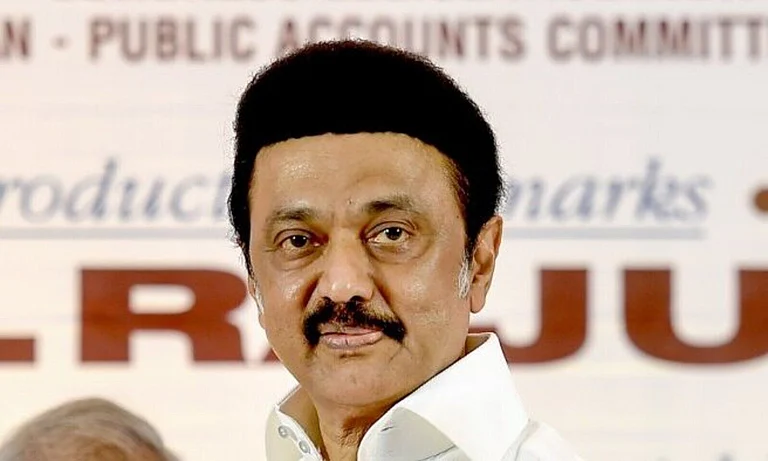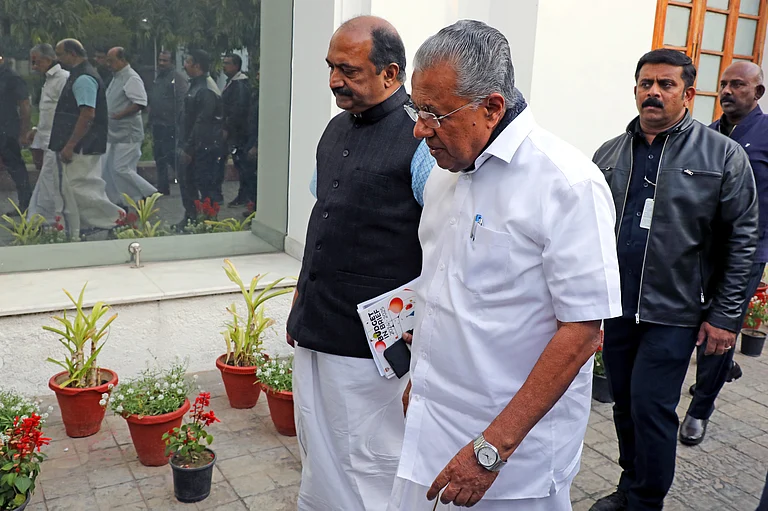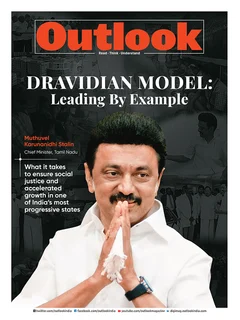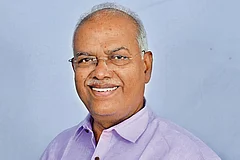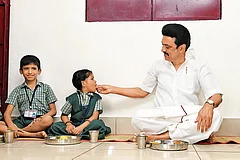Honorable Chief Minister of Tamil Nadu Thiru M.K Stalin launched two unique state health programs in August 2021
Health Scheme 1
“Makkalai Thedi Maruthuvam”-(MTM) Health services at your door step.
This program was initiated to deal with the rising silent epidemic of non-communicable diseases or lifestyle health disorders. 10969 women health volunteers,4848 health care workers and 2448 multipurpose health service providers were roped in to provide household diagnostic services for hypertension and diabetes. Monthly provision of antihypertensive and anti-diabetes medications for patients above 45 years of age was delivered. Home physiotherapy services, peritoneal dialysis and detection of congenital disorders in children were included in the scheme.
Outcome: So far up to Jan 2024 – 1 crore 72 thousand beneficiaries have utilized the services of the scheme.73.6% of the beneficiaries measured the blood pressure and checked their blood sugar for the first time in their lives. Higher proportion of women were screened when compared to men. Rural areas coverage rate was more when compared to urban households. The scheme coverage was more with scheduled caste population under social categorization.
Health scheme 2 –
Innuyir Kaapom – Holistic Trauma Services For Road Traffic Accidents
Tamil Nadu road safety data reveals that 55713 road accidents happened in 2021 with mortality of 14,912 and severe morbidity of 17,544.
To reduce this problem a novel program was launched to save lives of road traffic victims.
500 high risk zones were identified. Nearby Trauma care service providers were marked which includes 440 private and 222 government hospitals. Financial incentive of Rs 5000 were given for bystanders who brought the patients to the hospital within the golden hour.
Cashless service cover up to Rs two lakhs were provided for 81 neurosurgical, orthopedic and trauma surgeries through Comprehensive Tamil Nadu health insurance scheme. Services were provided to all including nonresidents of the state.
Outcome – Till Jan 2024 Two lakh people have been treated under this scheme.
The above two examples underline Tamil Nadu health model’s ability to evolve and deliver efficiently any community intervention as per its needs.
The success story is the culmination of targeted objectives of policy makers and political will based on foundations of social justice and inclusive development in the state health model.
In a socio-economic stratified society like our country, civil society reformation should precede and should be an ongoing affair for successful interventions in education or health sector
In Tamil Nadu, Dravidian model of governance as envisaged by our Hon’ble Chief minister Thiru MK Stalin ensures all policy formulations in health sector should have a bottom-up approach. This policy approach has its roots from pre independence era during Justice Party days. Interventions like removal of “must know Sanskrit policy “in professional enrollment and implementation of communal rooster system in educational institutions paved way for inclusive health care workforce.
Tamil Nadu public health system has 18,548 doctors right from primary care physicians to super specialists,35,882 nursing staff and above 45000 allied health care professionals belonging to all social strata evenly spread across the state.
Tamil Nadu removed all the blockades for the common rural people to be a part of the public health system workforce to serve the rural part of the state. It will be relevant to mention the rural reservation for medical undergraduate education, entrance exam abolition act for professional courses and 50% reservation for post graduate education for doctors working in primary health center for more than two years. All the initiatives were conceived and implemented by Kalaignar Karunanidhi overcoming judicial resistance. Following his foot steps present Chief minister Thiru MK Stalin fought a legal battle and won 27% reservation for backward classes in all India quota for post graduate medical education.
Tamil Nadu has its consistent policy of investment in human capital especially in health and education for the underprivileged masses. As a result, the state is enjoying the dividends of skilled health care workforce in both public and private health care systems.
As a result, the infant mortality rate for the state is 8.1 per 1000 live births. The maternal mortality rate is 52 per 100000 live births. The doctor population ratio is 4 per 1000. All the healthcare indices of Tamil Nadu are comparable to Scandinavian countries in sharp contrast to BIMARU states of northern India where its indices are similar to Sub Saharan nations.
With robust infrastructure of 36 government medical colleges and 62 attached hospitals ,290 district and taluk hospitals ,2127 primary health centers,8713 sub centers,463 urban PHCs ,416 mobile medical units, and one and half lakh inpatient hospital beds the state has been able to deliver efficient primary care secondary and tertiary care services.
The state government initiatives such as Dr. Muthulakhsmi maternal benefit scheme 1989 (direct cash benefit transfer for registered pregnancy), poison control toxicology lab and training center 2006, Organ transplant program -Transtan 2008 (Tamil Nadu government confers state rites funeral for the deceased donor to promote organ donation) and One district one government medical college scheme( 2006 ) have been adopted by the Union government.
MORE FROM THIS ISSUE
Way forward
The founding fathers of our constitution after many deliberations placed health and education in the state list. Post emergency these subjects were transferred to the concurrent list. Using the skewed advantage of the constitutional scheme the Union government for the past ten years has passed parliamentary legislations to engulf health sector without proper consultation of the states. The Union government adopts and enforces one size fits all model in a pluralistic country weakening the federal structure. Due to which the state governments are being deprived of their flexibility and creative innovation in health education and delivery of health care. At one end the financial allocation to health by the Union not raising above 1% of its GDP, there is sustained effort to undermine the individual state’s rights in health without proper financial support in National health programs. Therefore, it is imperative for other states to follow Tamil Nadu cause for federal polity in health and education.







